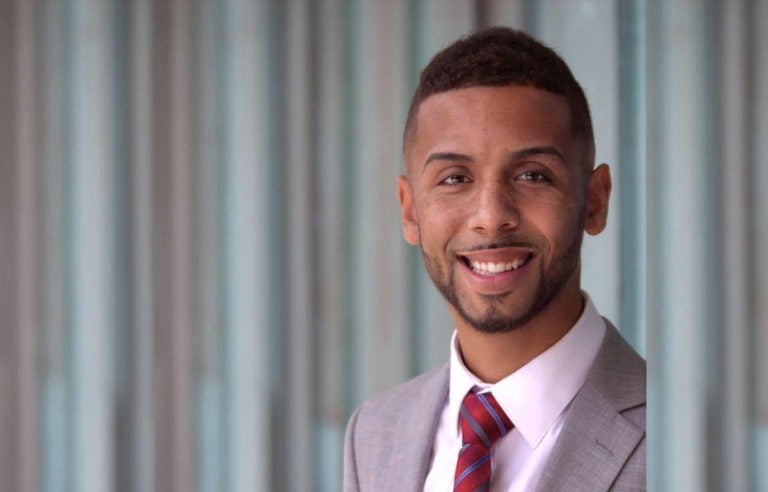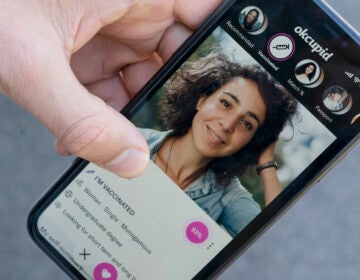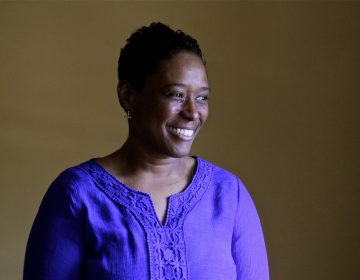I’m a queer man of color. Here’s how intersectionality impacts me.
Roberto Valdes, a queer man of color, writes about coming to know the term intersectionality and how it taught him to fully love and express himself.

Roberto Valdes has placed his queerness in one box and his Blackness in the other. But since learning the term intersectionality and moving to Philadelphia, the young attorney is embracing every part of who he is. (Courtesy of Roberto Valdes)
I’m a queer man of color. As such, I am deeply impacted by intersectionality, a theory which asserts that people are often disadvantaged by multiple types of oppression, such as racism, homophobia and classism.
Kimberlé Crenshaw, a lawyer and a scholar on critical race theory, coined the term in 1989 when she published a paper in the University of Chicago Legal Forum titled “Demarginalizing the Intersection of Race and Sex.”
In a recent interview with TIME, Crenshaw said intersectionality is basically “a lens, a prism, for seeing the way in which various forms of inequality often operate together and exacerbate each other.”
I first learned about intersectionality during an undergraduate sociology course at Lebanon Valley College, a predominantly white institution in Annville, Pennsylvania.
For me, it was revolutionary to be able to give a definition to the feelings and experiences — such as working at a small firm that affirmed my sexuality and welcomed my blackness as long as I didn’t speak out against racism — I’ve encountered as a result of my social and political identities.
After leaving Lebanon Valley College in 2014, I enrolled in law school at Penn State, where I focused intentionally on queer theory and critical race theory.
There, I developed a key understanding that while the law is sometimes presented as a neutral source of authority, it is far from that. Rather, it is the sum of a robust negotiation of identities in which some are elevated over others.
Take Degraffenreid vs. General Motors as an example.
In 1976, five Black women sued General Motors due to their de facto last-hired-first-fired policy, which resulted in the termination of all but one Black woman, who worked as a janitor. The plaintiffs argued they were discriminated against due to both their race and gender.
However, a federal district court ruled that discrimination may only call for action in instances of race discrimination or sex discrimination, but not a combination of both.
In many cases, this one-dimensional understanding of discrimination still exists today. And that’s problematic.
Because forcing Black women, or any person who exists at the intersection of marginalized identities, to litigate the totality of their identity in separate boxes, creates an impossible legal burden for recovery that is at odds with their lived experiences.
At various points in life, I’ve found myself placing my queerness in one box and my Blackness in another.
In law school, for example, I was a member of the Black Law Student Association and OUTLaw, the law school’s LGBTQ+ organization. But I never felt that an opportunity existed to discuss issues that specifically impacted queer people of color in either of those spaces.
Within OUTLaw, there was a lot of interest in advancing marriage equality. But the same passion didn’t apply to the fact that gay men of color in the United States are far more likely than gay white men to be diagnosed with HIV during their lifetime.
I didn’t feel that I could center the issues that disproportionately impacted LGBTQ people of color in either space without being seen as lacking an appropriate focus on the issues that were relevant to the organization.
But since moving to Philadelphia in 2017, I am no longer willing to compartmentalize my identities. I have learned to truly love and embrace every part of who I am.
Social identities matter and they aren’t abstract concepts that we should shy away from in polite conversation. As a society, we must do a better job of creating spaces for people to be fully expressive in who they are.
And when we say that Black Lives Matter, we must include all Black lives, especially the lives of trans-identifying people, who are more likely to be victims than perpetrators of sexual assault.
This Black History Month, and every day moving forward, let’s advance equity for Black people who exist at the intersection of multiple, marginalized identities. Let’s work in the spirit of leaders like Marsha P. Johnson, Audre Lorde, Bayard Rustin and Alice Walker, historical figures who dedicated their lives to advancing social justice for all people. They each demonstrated a clear understanding that there is no such thing as true liberation for anyone until we are all liberated.
To quote Audre Lorde, the self-described Black, lesbian, mother and feminist: “There is no such thing as a single-issue struggle, because we do not live single-issue lives.”
Roberto M. Valdes, Esq., is an accomplished attorney living in Philadelphia.
WHYY is your source for fact-based, in-depth journalism and information. As a nonprofit organization, we rely on financial support from readers like you. Please give today.




